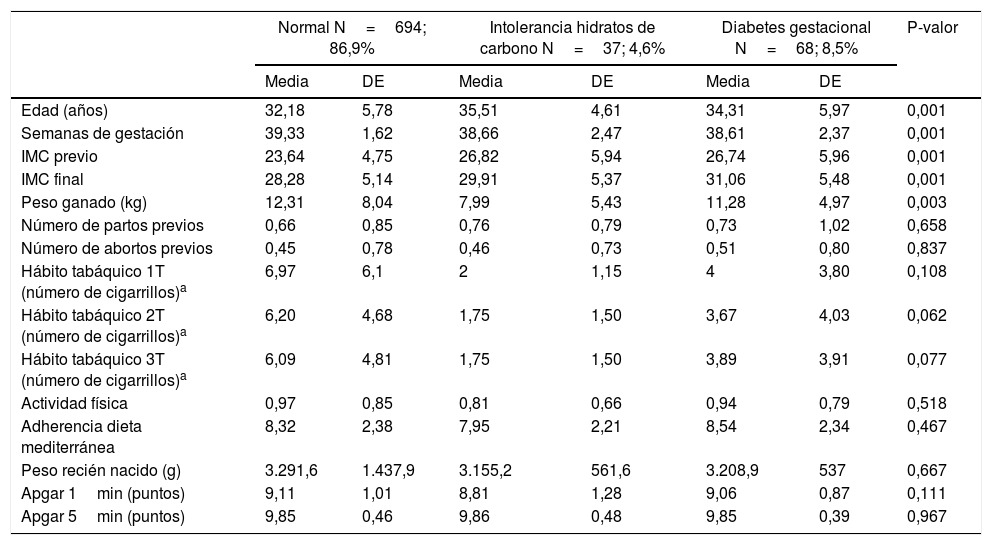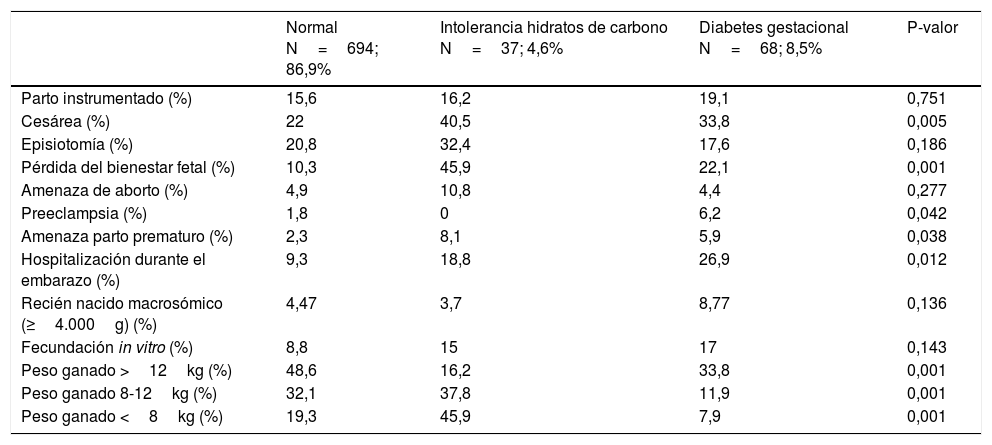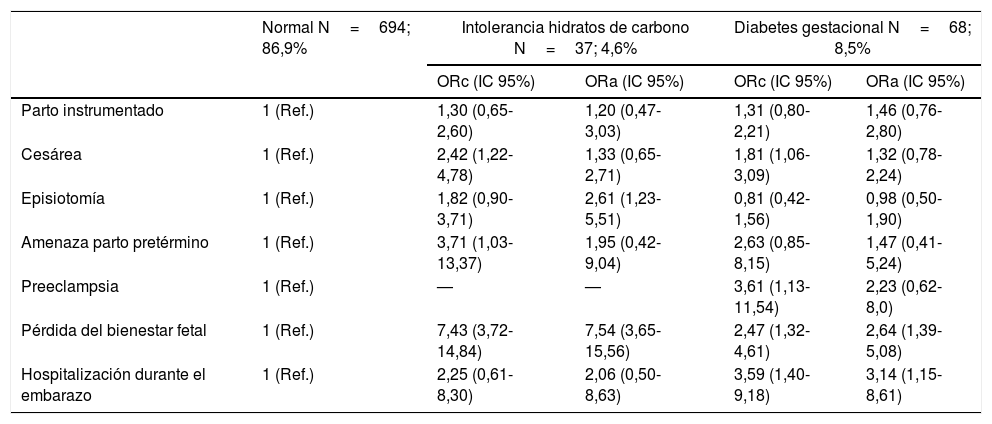La diabetes gestacional es la enfermedad que con mayor frecuencia origina alteraciones médicas en el embarazo. El objetivo de este estudio es valorar la relación entre la presencia de alteraciones en el metabolismo de los hidratos de carbono durante el embarazo y el riesgo de presentar resultados obstétricos adversos en la madre y el feto.
Pacientes y métodoSe realizó un estudio observacional en 799 mujeres que acababan de dar a luz. Se analizaron las características clínicas y obstétricas de las pacientes, así como los datos relacionados con la gestación y el parto, incluyendo el estado del recién nacido. Se evaluó la información con relación a las alteraciones en el metabolismo de los hidratos de carbono.
Resultados y discusiónPara las mujeres con diabetes gestacional encontramos un riesgo de 2,64 veces mayor de pérdida de bienestar fetal y 3,14 veces mayor de requerir hospitalización durante el embarazo. Para las gestantes con intolerancia a los hidratos de carbono encontramos un riesgo de 2,61 veces mayor de requerir episiotomía en el parto vaginal, 7,54 veces mayor de encontrar pérdida del bienestar fetal y 2,06 veces mayor de requerir hospitalización. El grupo de intolerancia a los hidratos de carbono se comportó de forma similar al de la diabetes.
ConclusionesEl grupo de intolerancia a los hidratos de carbono es un grupo poco estudiado y se han encontrado alteraciones obstétricas significativas frente al grupo control y similares a las del grupo de diabetes gestacional.
Gestational diabetes is the pathology that most frequently causes medical alterations in pregnancy. The objective of this study was to assess the relationship between the presence of alterations in the metabolism of carbohydrates during pregnancy and the risk of adverse obstetric outcomes in mother and foetus.
Patients and methodAn observational study was conducted on 799 women who had just given birth. The clinical and obstetric characteristics of the patients, as well as the data related to pregnancy and delivery, including the state of the new born infant were analysed. The information was evaluated in relation to the alterations in carbohydrate metabolism.
Results and discussionFor women with gestational diabetes a 2.64 times greater risk of loss of foetal well-being and 3.14 times greater risk of requiring hospitalization during pregnancy were found. For pregnant women with carbohydrate intolerance, a 2.61 times higher risk of requiring episiotomy in vaginal delivery, a 7.54 times greater risk of finding loss of foetal well-being, and a 2.06 times greater risk of requiring hospitalization were found. The group with carbohydrate intolerance behaved similarly to that with diabetes.
ConclusionsThe group with intolerance to carbohydrates is a little studied group and significant obstetric alterations were found compared to the control group and similar to those of the gestational diabetes group.
Artículo
Comprando el artículo el PDF del mismo podrá ser descargado
Precio 19,34 €
Comprar ahora










